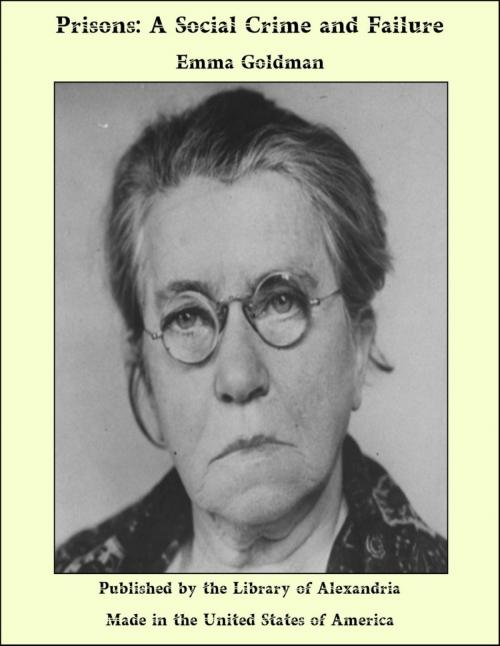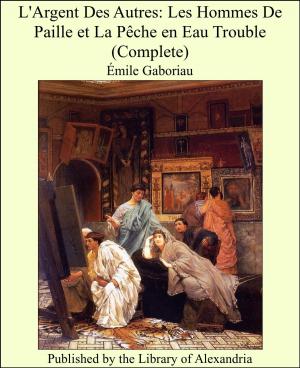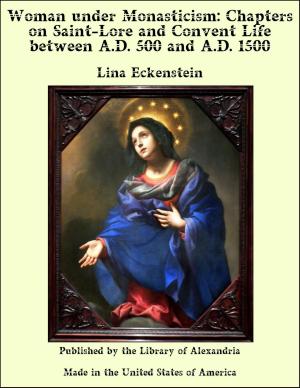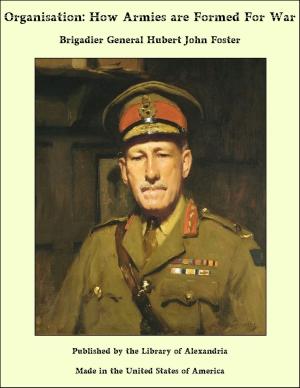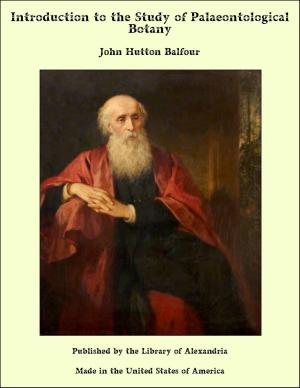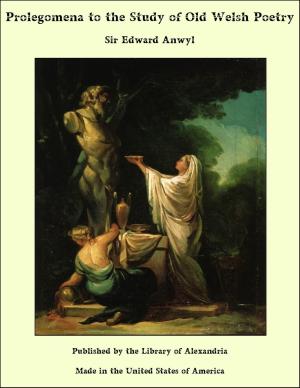Prisons: A Social Crime and Failure
Nonfiction, Religion & Spirituality, New Age, History, Fiction & Literature| Author: | Emma Goldman | ISBN: | 9781465597311 |
| Publisher: | Library of Alexandria | Publication: | March 8, 2015 |
| Imprint: | Language: | English |
| Author: | Emma Goldman |
| ISBN: | 9781465597311 |
| Publisher: | Library of Alexandria |
| Publication: | March 8, 2015 |
| Imprint: | |
| Language: | English |
IN 1849 Feodor Dostoyevsky wrote on the wall of his prison cell the following story of The Priest and the Devil: “‘Hello, you little fat father!’ the devil said to the priest. ‘What made you lie so to those poor, misled people? What tortures of hell did you depict? Don’t you know they are already suffering the tortures of hell in their earthly lives? Don’t you know that you and the authorities of the State are my representatives on earth? It is you that make them suffer the pains of hell with which you threaten them. Don’t you know this? Well, then, come with me!’ “The devil grabbed the priest by the collar, lifted him high in the air, and carried him to a factory, to an iron foundry. He saw the workmen there running and hurrying to and fro, and toiling in the scorching heat. Very soon the thick, heavy air and the heat are too much for the priest. With tears in his eyes, he pleads with the devil: ‘Let me go! Let me leave this hell!’ “‘Oh, my dear friend, I must show you many more places.’ The devil gets hold of him again and drags him off to a farm. There he sees workmen threshing the grain. The dust and heat are insufferable. The overseer carries a knout, and unmercifully beats anyone who falls to the ground overcome by hard toil or hunger. “Next the priest is taken to the huts where these same workers live with their families—dirty, cold, smoky, ill-smelling holes. The devil grins. He points out the poverty and hardships which are at home here. “‘Well, isn’t this enough?’ he asks. And it seems as if even he, the devil, pities the people. The pious servant of God can hardly bear it. With uplifted hands he begs: ‘Let me go away from here. Yes, yes! This is hell on earth!’
IN 1849 Feodor Dostoyevsky wrote on the wall of his prison cell the following story of The Priest and the Devil: “‘Hello, you little fat father!’ the devil said to the priest. ‘What made you lie so to those poor, misled people? What tortures of hell did you depict? Don’t you know they are already suffering the tortures of hell in their earthly lives? Don’t you know that you and the authorities of the State are my representatives on earth? It is you that make them suffer the pains of hell with which you threaten them. Don’t you know this? Well, then, come with me!’ “The devil grabbed the priest by the collar, lifted him high in the air, and carried him to a factory, to an iron foundry. He saw the workmen there running and hurrying to and fro, and toiling in the scorching heat. Very soon the thick, heavy air and the heat are too much for the priest. With tears in his eyes, he pleads with the devil: ‘Let me go! Let me leave this hell!’ “‘Oh, my dear friend, I must show you many more places.’ The devil gets hold of him again and drags him off to a farm. There he sees workmen threshing the grain. The dust and heat are insufferable. The overseer carries a knout, and unmercifully beats anyone who falls to the ground overcome by hard toil or hunger. “Next the priest is taken to the huts where these same workers live with their families—dirty, cold, smoky, ill-smelling holes. The devil grins. He points out the poverty and hardships which are at home here. “‘Well, isn’t this enough?’ he asks. And it seems as if even he, the devil, pities the people. The pious servant of God can hardly bear it. With uplifted hands he begs: ‘Let me go away from here. Yes, yes! This is hell on earth!’
